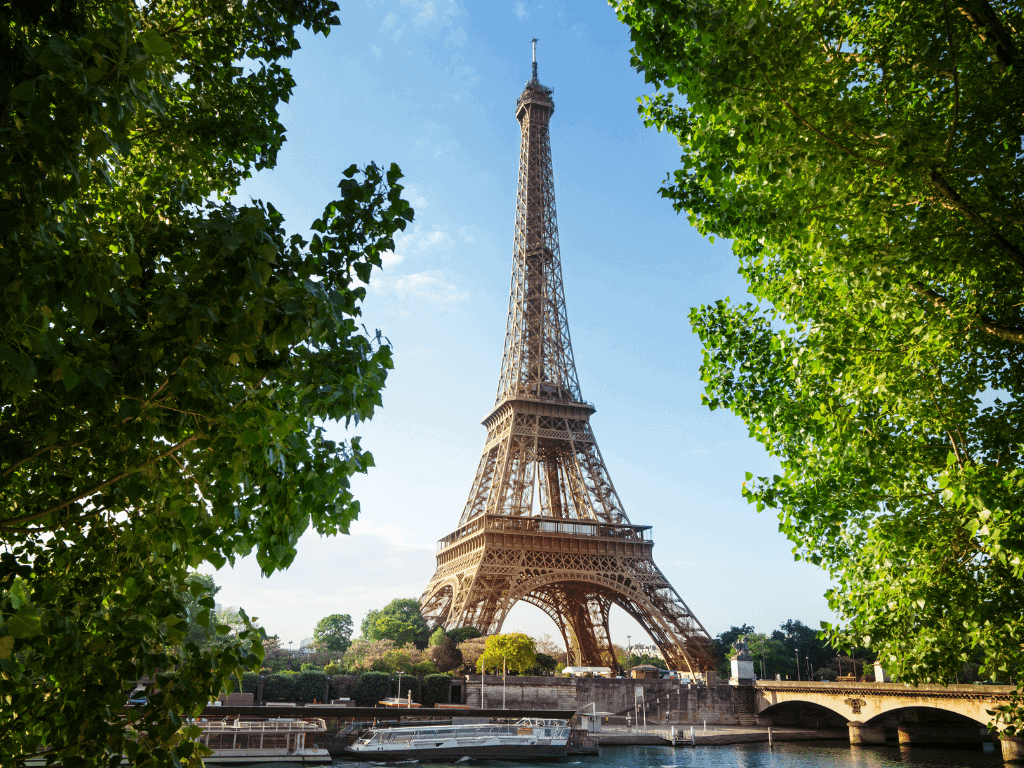The Essential France Travel Guide
Welcome to The Essential France Travel Guide! From gorgeous coastlines and rolling vineyards to bustling romantic cities and historical sites, France has it all. And of course, it has all the wine and cheese you could ever imagine. As a matter of fact, we think you’ll fall in love with all things French as soon as you arrive!
People often think of Paris when planning a trip to France, but the City of Lights isn’t all that the country has to offer. France is ideal for slow travel. Just pick any of the delightful towns scattered from the coastlines of Normandy down to the Mediterranean Sea to explore.
This France travel guide advises you on the best insights on cities and destinations, designed with the slow traveler in mind. If you desire to know France more deeply and participate in cultural exchange, this guide is for you!
What can I expect from France?
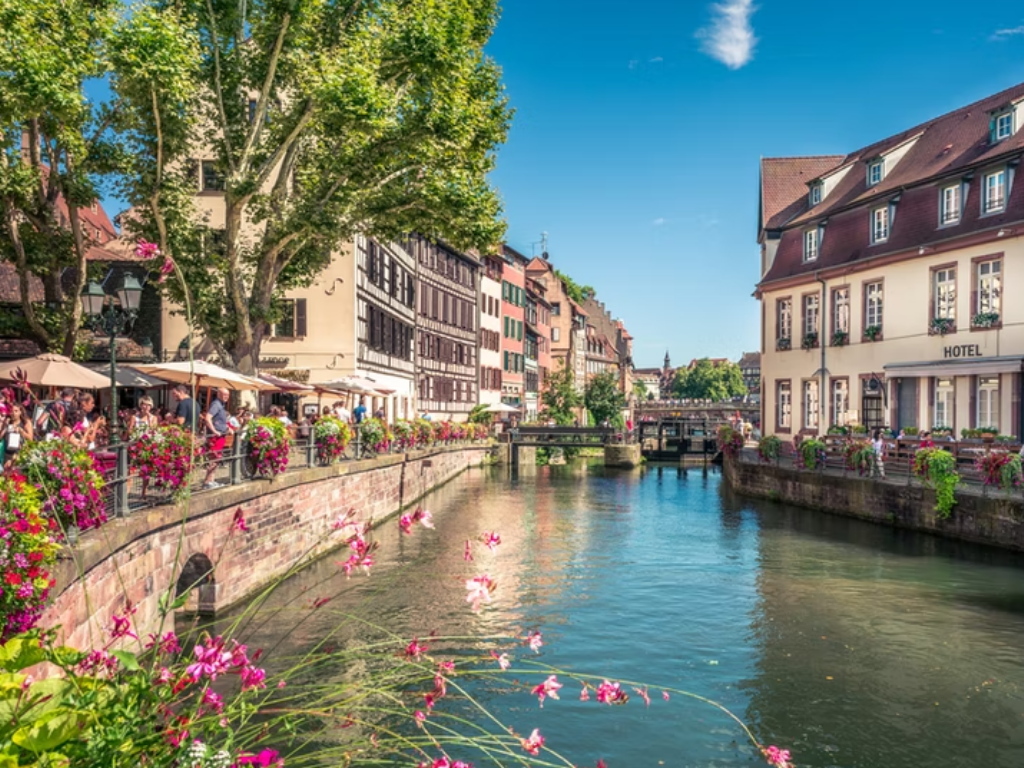
Overview: Outside of Paris, it is easy to take your time in France. Most people aren’t in much of a hurry. Plus, it’s easy to get around the country with or without a car. Grab a baguette and a bottle of wine, and you’re set for the day.
Currency: The Euro (€) is the official currency of France
Electrical Plug: France uses the type C and the Type F electrical plugs, which have two round posts side-by-side. Get a plug adaptor to use your electronics in France.
Visa: France is a part of the Schengen area. A tourist visa allows Americans to enter Europe for a total of 90 days. You do not need to apply for a visa ahead of time; upon arrival, just let Customs know you are in Europe for touristic purposes.
Religion: France is a secular state with some of the strictest laws in the world separating church and state. Although France is historically Catholic, most people identify as atheists or agnostic. France is also home to a visible Muslim population.
Languages: French is the main language spoken in France. Local dialects are spoken throughout the country. For example, Alsatian, a dialect of German, is widely spoken in parts of the Grand Est. Arabic is also spoken given the historical ties between France and North Africa.
Keep in mind that the French are proud of the French language. Generally, they are uncomfortable speaking English, unless absolutely necessary. To emphasize, signs and other types of information are rarely printed in English, especially in the French countryside. Brush up on your French before you go, or at the very least, download Google Translate!
Opening Hours: Standard work hours in France are 9 am-6 pm with a two hour lunch break around 12-2 pm. For the tourist, the key hours to know are: 1) bakeries open as early as 6 or 7am, and 2) retail generally opens at 10am. In other words, you can enjoy your coffee and croissant before hitting the local boutiques! Additionally, it is common for small businesses to be closed on Mondays after a busy weekend.
Regions: France is divided into 13 different administrative metropolitan regions including: Auvergne, Brittany, Bourgogne, Corsica, Centre-Val de Loire, Grand Est, Hauts de France, Ile de France, Nouvells Aquitaine, Normandy, Occitanie, Pays de la Loire, and Provence-Côte d’Azur.
Festivals/Celebrations: France has a variety of different festivals located all throughout the country. Some of the most popular French festivals include: Cannes Film Festival (May), Nice Carnival (February/March), Les Choregies d’Orange (celebration of Opera), Tour de France (21 days in July), Bastille Day (France’s independence day on July 14th), and the Menton Lemon Festival (February).
Alsace (Grande Est) is well known for its month-long Christmas markets (December). Here, the magic of the season meets hot wine, ice skating, exquisite Christmas displays, and local crafts in a festive atmosphere.
Things to Do and See in France
France is so much more than what you see in the movies. The entire country has fairytale villages and castles, towering, French gothic cathedrals, and of course romance around every corner. Each city, region, and village has its own unique style and variety of things to taste, see, and experience. It is impossible to fit everything there is to do in one France travel guide. But, we have put together the best experiences to inspire you to slow down and immerse yourself in French culture.
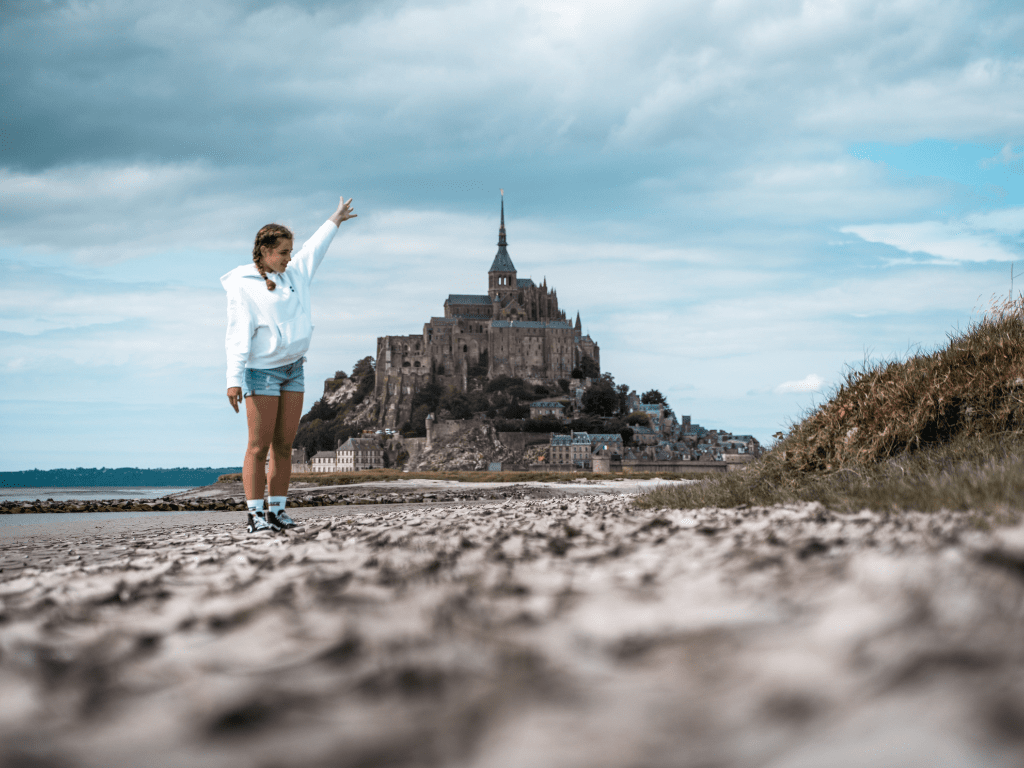
Top Things to Do in France
- Paris – More often than not, Paris will be your starting point in France. The city is not only known for its beauty and romance, but also for its amazing architecture, historic sights, and mouth-watering French cafes and restaurants. Some of the best things to do in Paris are: the Musée de Louvre, Eiffel Tower, Notre Dame Cathedral, Catacombs of Paris, Moulin Rouge, Arc de Triomphe, the Seine River, and the Musée d’Orsay.
- Mont Saint-Michel – Situated at the top of a tidal island this UNESCO Heritage site cannot be missed. Mont Saint-Michel, located on the border of Brittany and Normandy, is protected by fortified walls, in keeping with the magic of the middle ages. What was once a monastery is now one of the most visited spots in the country. To maximize the experience, consider staying on the island overnight to explore and capture photos in the moonlight.
- Hop a bicycle in Strasbourg – Located in the Grand Est and home to the European Parliament and Council of Europe, the city of Strasbourg boasts architectural wonders from every period since Medieval times. The timbered-lined City Center is also UNESCO World Heritage Site. Best of all, you can enjoy these sights by renting Strasbourg’s favorite form of transportation: the bicycle. Then, cycle over the Europe Bridge to Germany and back again!
- The Loire Valley – The Loire Valley itself is a UNESCO Heritage Site. Famous for having an abundance of châteaux (castles) (around 300 in existence) in the area, the valley stretches 174 miles (280 kilometers) down the river. The Chateau de Chambord is the largest castle and is well worth a visit. This is surely superb spot for slow and immersive travel through the countryside of France.
- Provence Lavender Fields – Visiting France in the summer comes with its perks, especially Lavender season (mid June-mid August). In the south of France throughout the Provence region, lavender fields take over the landscape, stretching for miles and miles in every direction. In addition to the lavender fields, the entire region of Provence is filled with charming villages and year-round markets.
- Gorge du Verdon – Located in the south of France, the Gorge de Verdon will amaze you with the most turquoise and teal-colored waters in all of France. The 15 mile (24 km) canyon stretching above the Verdon river, is an ideal place for low-impact water sports such as kayaking or stand-up paddle boarding.
- Le Puy Camino – An extension to the Camino de Santiago in Spain, hikers can begin on a variety of French trails, the most popular being the one beginning at the Cathedral in Le Puy-en-Velay, France.
- Saint-Tropez Beaches – The coast of Saint-Tropez is any beach lover’s dream. Known as “the pearl” of Cote d’Azur, it has arguable the best coastline in the country with it’s crystal clear waters, white sands, and views for days. Additionally, the unofficial yachting capital of France offers many sailing and boating opportunities to see the coastline from a distance.
- Cannes Film Festival – One of the most popular and attractive events in the world for art and film lovers is the Cannes Film Festival. The festival is known for recognizing high-caliber films, and spectators can take in filmmakers and celebrities making their way down the red carpet, all while having some of the best views in Cote d’Azur.
- Go Skiing in the French Alps – While you may think of Switzerland when you think of the Alps, France shouldn’t be left off the list. Stretching across the southeastern part of the country, the French Alps is one of the most popular destinations for getaways and winter sports.
- Chateau Vaux-le-Vicomte – This historic monument is the representation of the first France Formal Garden, dating back to the 17th century. The Chateau Vaux-le-Vicomte, located just 34 miles (55 km) southeast of Paris in Maincy, is known for its geometric layout of gardens and landscaping, fountains, and eye-catching historical architecture. It’s perfect for a afternoon stroll. But, if you can, go in the evening for a candlelit dinner when the romance is gleaming.
- Wine Tasting in Bordeaux – A trip to France is not complete without going out for a wine tasting, and Bordeaux is the best place to be. While there are dozens of vineyards all over the country, the wines of Bordeaux are some of the tops in the country. The city itself is also a nice change of pace from Paris, being more slow-moving and walkable, and there are many vineyards to visit in the region.
Book a Tour in France
Browse amazing tours in France organized by our friends at GetYourGuide, and make the most of out your trip.
Typical Costs When Traveling
Accommodation – Costs have been rising higher and higher in recent years, but France is a country fit for any budget. Depending on your traveling style, hostels are available in most major cities, starting on average at 30€ and up per night. Budget-friendly guesthouses and B&Bs (75-100 €/night) are located throughout the country, as well as luxurious châteaux (200€/night) and hotels. Vacation rentals are very popular and can be booked through sites like Airbnb (Get a discount with my link) or VRBO.
Food – A traditional French breakfast consists of coffee, a baguette with butter and jelly, a viennoiserie (e.g. croissant or pain au chocolate) and a glass of orange juice for $10. Lunch tends to last long in France, typically being the longest meal of the day. Dinner time, on average, starts around 7 pm. It is very easy to find a prix-fixe meal for lunch or dinner for 10-20€. Add wine for an average of costs 4€. Keep in mind that Europe, unlike the USA, does not offer free refills for drinks. That means each one must be paid for separately.
Transportation – The transportation system in France is very sophisticated and affordable, and you can easily get around larger cities using public transportation. For travel in-country, SNCF operates a system of trains ranging from commuter to high speed long distance trains. More on trains and busses in the booking section, below. You may easily search trips and book online, but please note fares are not typically available more than 6 months in advance. For the best price, book around one month in advance. To avoid lines—and due to lines being paperless post-COVID—pre-purchase online.
Activities – There is no shortage of activities in France. Most museums and historical sights have a small fee, if any fee at all (students and kids are usually free). Depending on your budget and travel style, activities can be easily done on a budget, or splurge for more sophisticated or drawn-out activities for a more immersive France visit.
Suggested daily budget – 40-80 EUR / 40-80USD (Note: This is a suggested budget assuming you’re staying in a hostel, eating out at casual establishments, and using local transportation. Using the budget tips below, you can always lower this number. However, if you stay in luxury accommodation or splurge on meals, expect this to be higher!)
Money Saving Tips
Traveling slowly through France can be a good thing or a bad thing for your wallet. Depending on your travel style, a long and immersive trip may mean sticking to a tight budget. However, once you get the hang of French and European culture—something we hope this France travel guide is doing—it’s not so hard to save a a few euro.
- Skip the sit down restaurants – While a sit-down meal is something recommended to do at least once in France, once is enough. It is very easy to find small cafes with take-out or street food options in most major cities. The taste is just as good and is usually half the price.
- Rent a Bike – Like many other tourist destinations, you can easily find bikes and scooters to rent for a few hours of your trip. Pick one up, and drop it off at any other city bike stand in the city. Just check signage to rent and pay via credit card using the mobile phone app.
- Book ahead in the high season – Budget accommodations in highly trafficked cities have a way of selling out in the high season. If you are sure of your travel dates, consider booking several weeks or months in advance in spring and summer.
- Sharing Economy Services – Download the BlaBlaCar ridesharing APP to see if someone is driving to your destination, and split the cost of gas. For accommodations, rent an Airbnb, couchsurf, or participate in a work exchange. (Of course, use good judgement if deciding to use any of these services.)
Where to Stay in France
In whatever city you travel to in France, it’s best to stay in the city center when possible. Try to book accommodation within walking distance (15 minutes) to the center. If nothing else, book a place close to a metro station for easy access to public transportation.
In smaller cities where you can walk the entire length of the city on 20-30 minutes, any clean, appealing location will be suitable.
Some lovely places to stay in France are:
- The ibis hotel chain has great properties at a great value! ibis Paris Bastille Opera 11th had the most beautiful lobby and breakfast area, too.
Traveler Tip: Look through reviews prior to booking to see how previous guests describe the atmosphere and nights sleep.
What to Eat in France
The typical French breakfast begins around 8-9 am. It is typically something light such as bread or a pastry, with a tea/coffee. Eggs are also common, typically on a croissant sandwich.
Lunch is enjoyed later in the day around 12-2 pm, and in many larger cities, shops and other buildings will shut down and close for lunch hours. Lunch tends to be the longest meal of the wine in France.
Dinner time in France starts around 7 pm. This tends to be the larger meal of the day, and one that can last late into the night, especially if you enjoy a glass of French wine or two. In France, eating dinner is not simply dinner, it is an event to gather and meet with friends, talk about your day, and relax. Keep in mind, that when eating out in most French restaurants, the bill will not be brought to you until you ask for it. Tipping is not required or expected, but a small tip is always appreciated.
Best Food to Try in France
Due to the entertainment industry and media, when most people think of France, what often comes to mind are baguettes, cordon bleu, or caviar.
However, there is so much more to French cuisine than portrayed on television. Here are some French favorites not to miss:
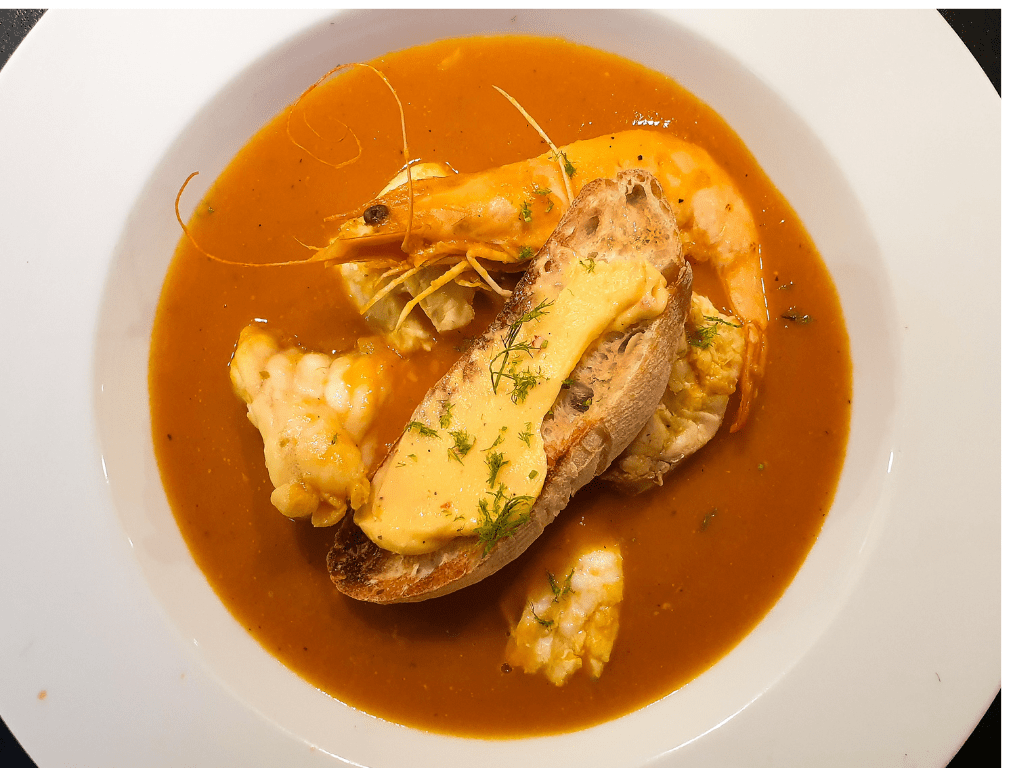
Macaroons – This delectable French pastry may be a popular treat all around the world, but a French macaroon is a mouth-watering delight. Most pastry shops will have homemade fresh macaroons made daily. Certainly, stop in for a few treats.
Cassoulet – A favorite dish of the French is cassoulet. This is feel-good food at its finest, consisting of white beans slowly stewed with meat. The type of meat will vary, but duck and pork are most commonly used. Some chefs will add vegetables for unique flavors.
Bouillabaisse – Originally from Marseille, bouillabaisse is a fresh fish stew that features herbs and spices. The recipe will vary from chef to chef, and city to city, but the most important part is the fresh fish. If you enjoy seafood, you must try bouillabaisse.
Additionally, cheese: If you are a cheese connoisseur or a food lover of any kind, don’t forget to taste the awesome variety of cheeses in France—the stinkier the better. Your taste buds will thank you later.
How to Get Around France
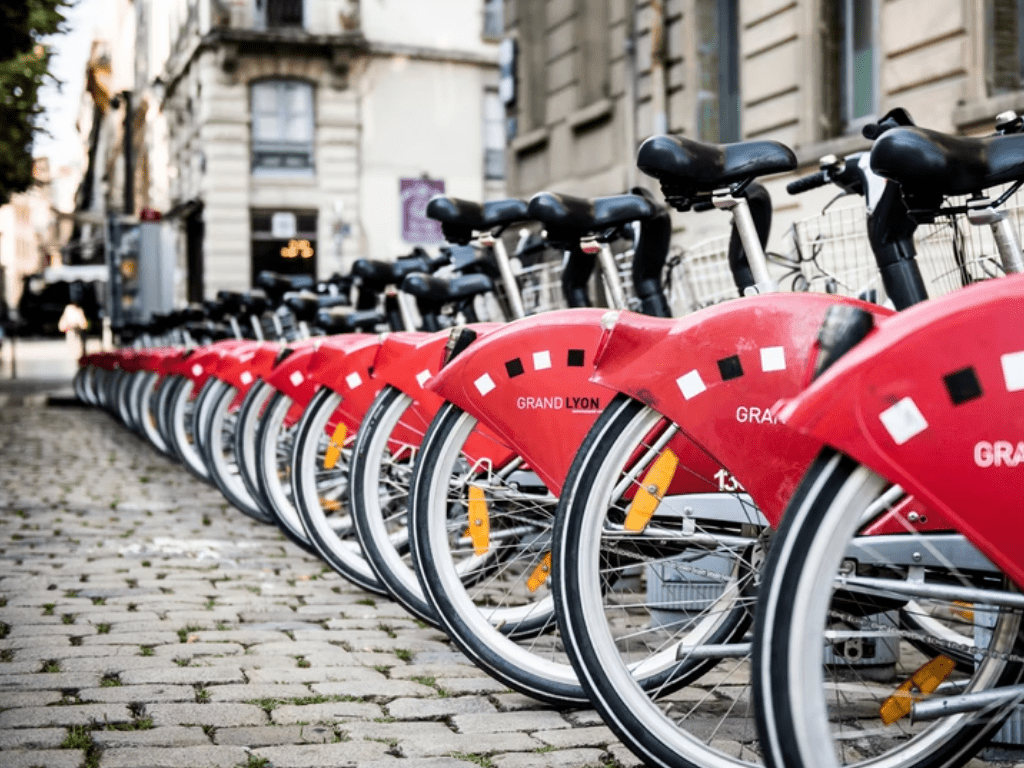
Public Transportation – You will find a great network of public transportation including metro, rail, and bus services. Plan to do a lot of walking and enjoy pedestrian-only areas. Many smaller cities are completely walkable if you stay in the city center, meaning you will not need to take public transportation at all after arrival. Just use your own two legs!
Train – The transportation system in France is modern, and you can easily get around larger cities using public transportation. For travel in-country, France has 2 main Train lines: SNCF and OUIGO, operating in all major cities, and dozens of smaller villages as well. Most trips are easily searched and booked online, but please note fares are not typically available more than 6 months in advance.
Bus – If you have a little more time and/or want to save money, buses are typically cheaper than trains and run regularly. Some towns not serviced by train are accessible by bus, but please be aware they may only run once per day or only on certain days of the week. Check out our recommended booking tools to search and book schedules. Flix Bus, is a popular and well-known bus service in Europe, having routes throughout France, sometimes even as low as $2.
Budget Airlines – We prefer enjoying the landscape and the ease of traveling by train. Nevertheless, Europe boasts many budget airlines both to get to/from France as well as to travel within France. Prices are often similar to trains, so take into account the total travel time to decide if taking a flight is worth it to you. Ryanair is a popular budget airline in Europe that we have used many times. The planes are small, but you get what you pay for.
Car Rental – There are many towns and hamlets worth a short visit, so for the more adventurous heading off the beaten path, or a road trip through the Loire Valley perhaps, we suggest renting a car. Using highways can get pricey with an increase in toll booth prices, but can be avoided using less popular routes. France drives on the right side of the road (same as the USA), and stick shift cars are most common. Prepare to pay a premium to rent an automatic.
Rideshare – For the budget conscious and less risk-averse, ride shares using the Bla Bla Car APP are an option. Simply search for a ride, meet your driver, and split the cost of gas. This can be a great option to jump to a small village and an opportunity for cultural exchange. Additionally, especially in the south of France, hitchhiking is often very common. We know multiple people who have, in fact, hitchhiked the entire country (though it’s not our cup of tea)! When choosing a ridesharing option, it is most important to be safe. Use your gut and be smart; if something feels off, it probably is. Assess your risk, and be sure to get travel insurance.
When to Go to France
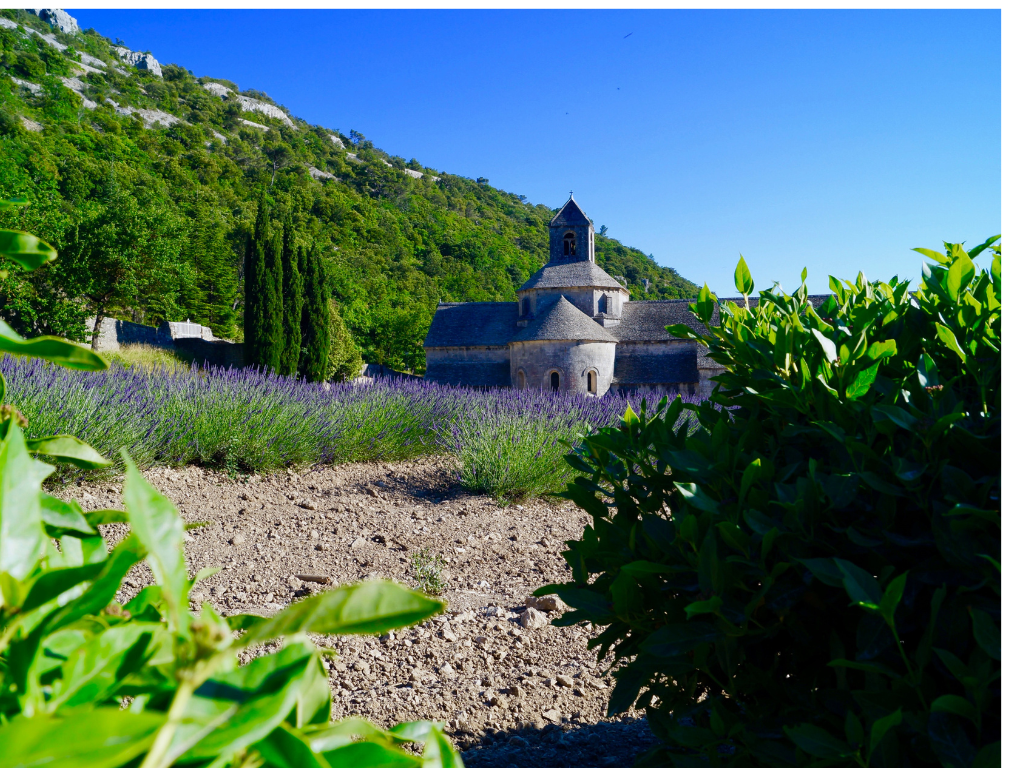
France is a country that experiences all four seasons. Depending on which region of France you are visiting, locations and times may vary for when is the best time to visit. Overall, springtime offers a combination of good weather, fewer crowds, and gorgeous views.
While France has amazing summers, it comes with big crowds and higher prices. Plus, the French are not known for a love for air conditioning, so be prepared to sweat.
September-November tends to be the shoulder season in France, offering lower rates, and attracting fewer visitors.
How to Stay Safe in France
France is safe for travelers, for the most part. There will always be petty crime in major cities and pickpocketing isn’t unlikely. Stay alert, and watch out for your surroundings at all times. If you are out after dark, stay in a well-lit area. In short, be smart and trust your instincts.
Riots and strikes are fairly common in France. When this happens, try to avoid major events or important buildings, and check for schedules (e.g. train station, buses, and airplanes) or announcements in advance of travel.
Luckily, if you book online, more and more booking platforms tend to send emails and updates when strikes are occurring and will alter schedules.
Don’t forget to purchase travel insurance with World Nomads prior to your trip in case of an emergency or trip interruption. Check out the many benefits of travel insurance on our dedicated World Nomads page, or get a quote below.
Best booking tools for slow travelers in France
Check out our recommended booking tools for self-planned itineraries:
Flights:
- Google Flights – Start your planning here. To get an idea of flight prices and routes, browse Google Flights by using the explore map.
- Skyscanner – Find flights that other search engines miss.
- Expedia – Best all around booking tool, search for hotels, flights, cars, vacation packages, and cruises. No matter where you are going, this booking tool help every type of traveler get the best value every time.
Accommodations:
- Booking.com – Access a clear, easy, and transparent hotel booking process that includes hotels, hostels, guesthouses, and more. It’s great for anyone who likes to stay organized and do research.
- Hostelworld – The leading provider of online hostel reservations to budget, independent, and youth travelers, Hostelworld has has a great search interface and the largest inventory of hostels to choose from.
- Airbnb – Rent a room or entire apartment to live like a local. (Use my link to get $65 off your first stay)
Transportation:
- Rome 2 Rio – Begin planning your in-country travel with this website offering air, train, bus, or taxi routes. (I like to use this as a research tool.)
- Trainline – Europe’s leading train and coach app, get the best available prices, times, and train/bus tickets for your journey. You can also purchase train and bus tickets directly from suppliers.
- Eurail – This all-in-one train pass offers flexible access to most trains across Europe and is good for a backpacking trip. Go wherever you want, whenever you want.
- Bla Bla Car – Find a carpool ride with this ridesharing APP. Just chip in for gas!
Activities & Tours
- GetYourGuide – Find and book city tours, day trips, and cultural experiences.
- EatWith – Join culinary experiences led by passionate hosts and chefs.
Travel Insurance:
- World Nomads – Don’t forget to protect your investment from trip interruptions to unexpected injuries.
- SafetyWing – Designed to meet the medical and travel needs faced by digital nomads and remote workers, insurance covers unexpected illness and injury as well as emergency travel-related issues like lost checked luggage.
Go to our resources page for more booking tools we use to plan our trips.
Gear & Packing List
The landscape and climate can change drastically in French, so pack a variety of clothing and footwear if you’re planning to travel extensively. While the south is known for it’s sunny beaches, the northern coast can be cool and wet.
Check out my packing list for Europe. In addition, be sure to include the following for France specifically:
- a sun hat (summer) – women’s sun hat | men’s/unisex sun hat
- lightweight summer dress (women) or dri-fit button down top (men) for evenings out (summer)
- bathing suit (summer) – you never know when you might like to go for a swim
Shop My Travel Essentials
Expat Tip: The trench coat is the ultimate fashion statement in France, and super easy to pack!
France City & Regional Guides
Although this France travel guide is written on a country level, we recognize there are dozens of cities and smaller towns that allow visitors to slowly travel through France.
With this in mind, take a look at our France regional and city articles for the best tips on how to enjoy slow travel in France:
France Guidebooks & French Tools
Check out our recommended France guidebooks, apps, and language learning tools to help you learn about the French language and culture.
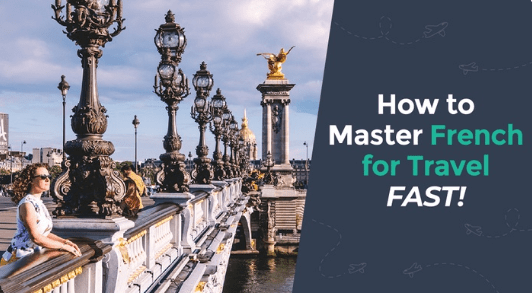
Pin it!
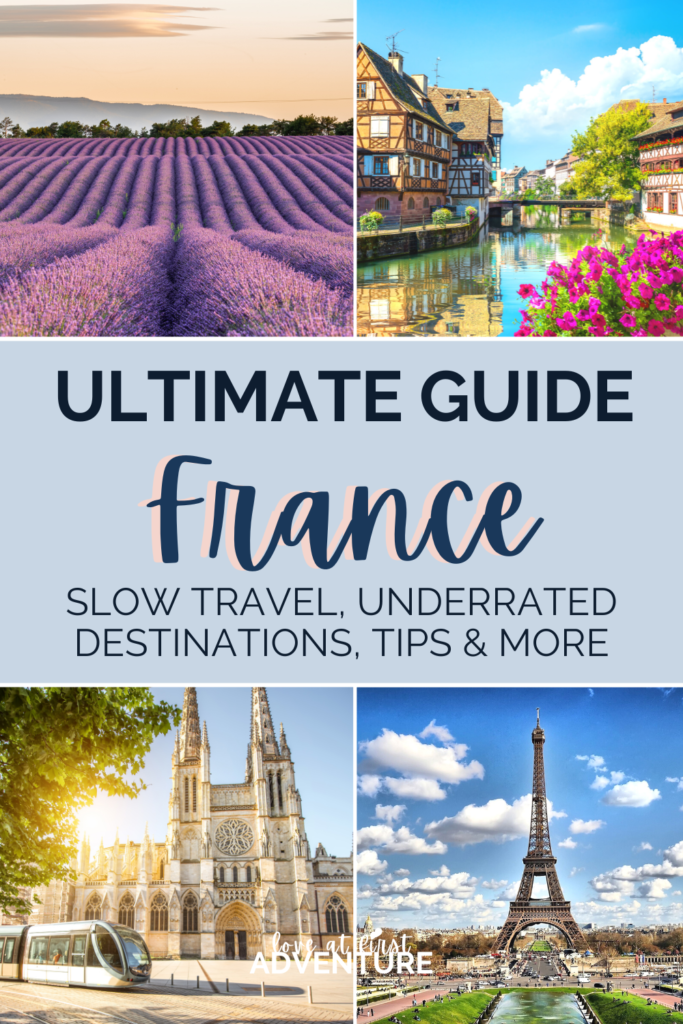
Disclosure: Some of the links provided on this website are affiliate links from which I may make a commission if you make a purchase. See disclaimer for more information.

